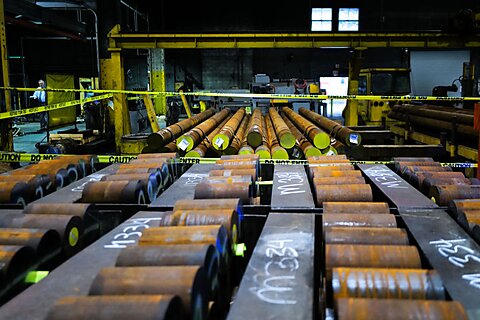Scott Lincicome
Today, President Joe Biden blocked Nippon Steel’s proposed acquisition of US Steel on the grounds that “there is credible evidence” the Japanese steelmaker “might take action that threatens to impair the national security of the United States.” What “credible evidence” might push the president of the United States to block a multi-billion dollar investment in an ailing American steel company by a publicly traded corporation headquartered in one of the United States’ closest allies? Well, Biden never says, perhaps because—as I wrote right before the holiday—there is none:
Nippon Steel wasn’t just paying a big premium for US Steel, but had also pledged to invest at least $2.7 billion in US Steel’s union-represented facilities;
Steel buyers and industry experts in the United States supported the deal because they believed it would improve both US Steel and the domestic steel market. The transaction was backed by thousands of US Steel employees, more than 98 percent of its shareholders, and an independent arbitration panel chosen by the company and the United Steelworkers (USW) union.
Independent national security and foreign policy experts across the political spectrum agree that the arrangement should proceed because it raises no national security concerns. Instead, many of these same people, and many others, believe that the deal would, if anything, bolster US national security and relations with one of our closest allies.
Many US government officials, including the three federal government departments with the most responsibility for and expertise in national security and foreign investment—Treasury, State, and the Pentagon—have concluded that the proposal poses no security risks.
The transaction was and remains a no-brainer, and right after I wrote my column, the Hudson Institute’s William Chou and Paul Sracic published a comprehensive national security analysis of the deal, coming to the same conclusion:
We examine Nippon Steel’s acquisition of US Steel from industrial, antitrust, labor, technology, trade, national security, and community perspectives. Our research findings determine that this proposed transaction would advance American economic, national security, and political interests at a time when the needs for secure domestic steel production and supply chains are paramount.
Nippon Steel even went so far as to offer the US government unprecedented veto power over the merged entity’s future US plant closure decisions (to alleviate possible concerns that the company would reduce US steelmaking capacity). In the end, however, none of this mattered because, as I documented last month, Biden’s decision wasn’t about “national security” at all. It was about politics—in particular, USW pressure on Biden and other administration officials to block the deal and, as the Pittsburgh Post-Gazette reported last month, US steelmaker Cleveland Cliffs’s herculean lobbying efforts to stymie a possible new competitor in the captive (thanks to tariffs and other protectionism) US steel market.
Given these obvious and widely reported motives, it’s all but certain that Nippon Steel and US Steel will challenge Biden’s decision in federal court. Maybe they’ll win in the end, and maybe the plan—and all those new investments—will be saved. As I wrote last month, however, “the politicization of the Nippon Steel deal and ‘national security’ has potential harms that go way beyond the two companies or even the industry at issue.” In particular, it risks damaging the US investment review process; US-Japan relations; the United States’ position as a welcoming place for foreign investment; nations’ general rule against using “national security” as a guise for political favoritism and economic protectionism; and the US economy itself.
The courts, unfortunately, won’t be able to reverse any of that.

